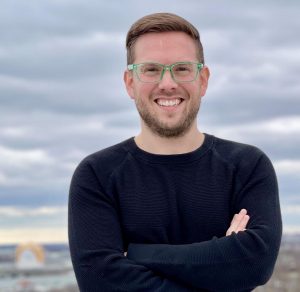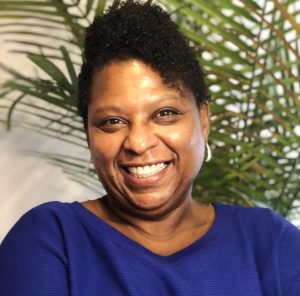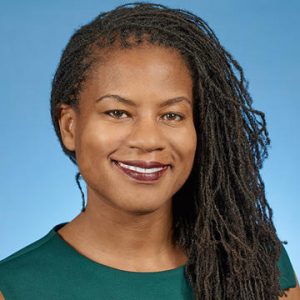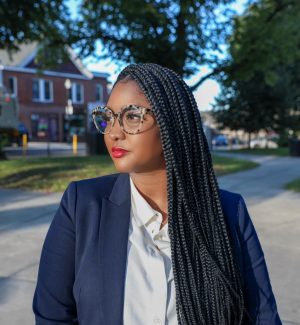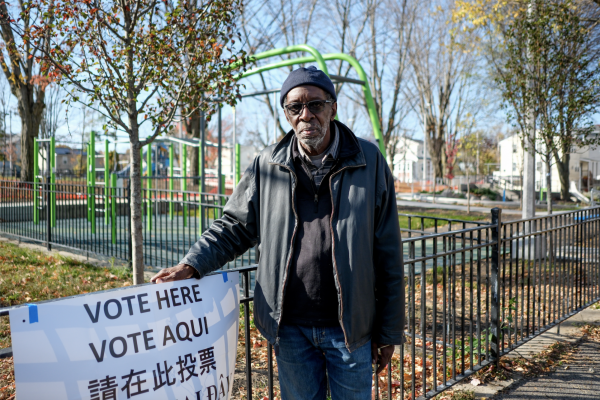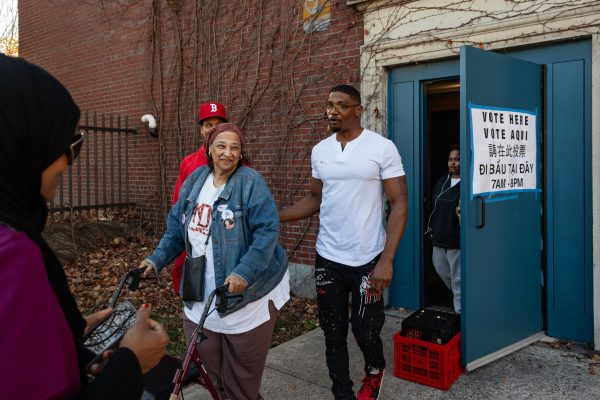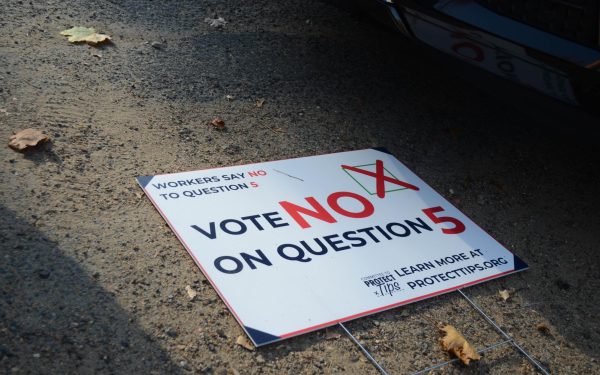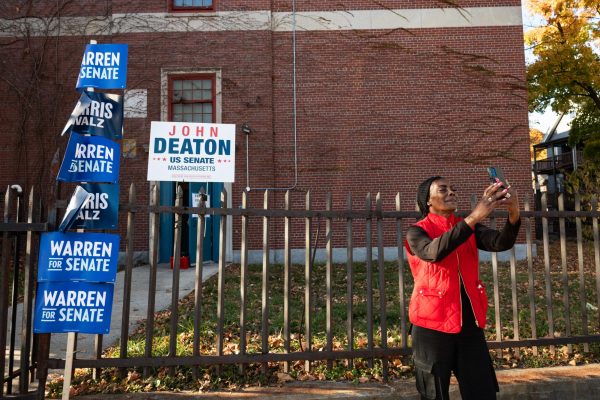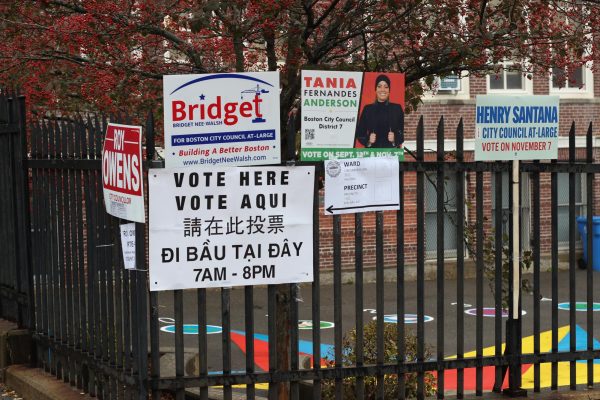City council race: Kelly Bates running for at-large seat
Kelly Bates, a lawyer and social change advocate from Hyde Park, is running for a Boston city council at-large seat.
Bates is running against at least 15 other candidates including incumbent councilors Michael Flaherty and Julia Mejia in the race for the at-large seat on the city council. Councilors at-large Michelle Wu and Annissa Essaibi-George are running for Boston mayor.
Bates, who also served as an adjunct professor at Northeastern Law School and Tufts University, has accrued 25 years of experience leading organizations to advocate for social changes in racial and gender equity.
As executive director of nonprofit foundation Access Strategies Fund until 2013, she worked to support underserved communities in Massachusetts to increase civic participation. She served on Mayor Menino’s School Choice Committee to work toward quality education for children in Boston.
In 2013, Emerson College appointed Bates as the founding executive director of the Elma Lewis Center for Civic Engagement, Learning, and Research. The Elma Lewis Center provided financial and strategic support for the civic engagement activities of the college’s students, faculty and staff.
Her key priorities running for the at-large seat, Bates said, are on policies that affect housing, public health and violence, education, and women and girls.
“One of the reasons that I have wanted to run for office is so that young women have a voice in the process and that we can really amplify their experiences,” she said.
Bates is a founding board member of Emerge Massachusetts, an organization that trains and supports women running for political office.
She currently lives with her husband Yves and two sons in Hyde Park.
The Scope spoke with Bates to discuss her campaign’s top issues and her plans to address them if elected. The following conversation has been edited for length and clarity.
What are the most important policy issues on your platform?
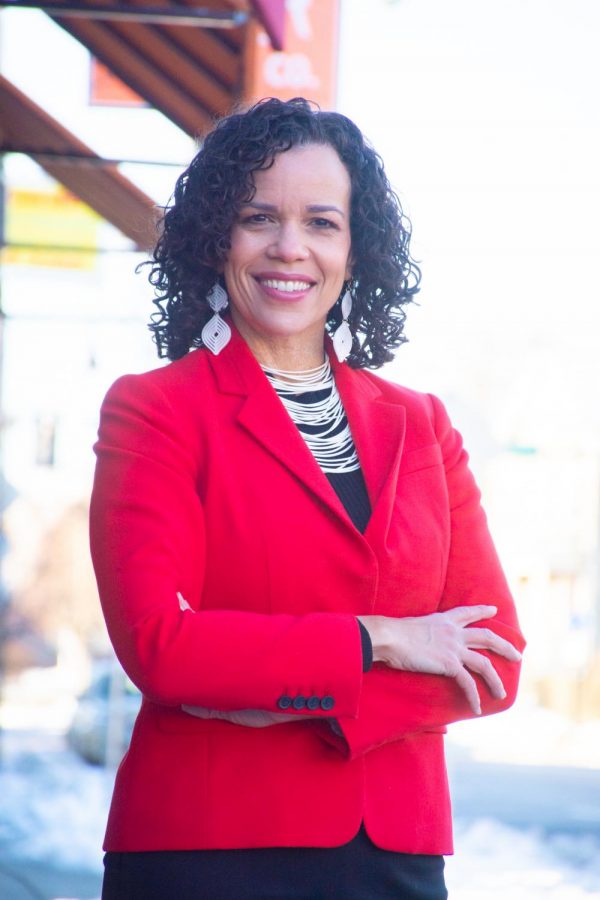
I think the most important policies for my platform really relate to how we address long-standing problems in this city while also recovering from the impacts of COVID and the injustices we’ve seen around racial inequities in the city.
First is housing, and I think that’s really important to both students and staff at Northeastern. It’s just too difficult for people to go to school in Boston and be able to stay and pursue a career or for the staff of the university to be able to find housing that they can afford. I will fight for pathways for rental stabilization and affordable homeownership and really try hard to work to eliminate homelessness, which has been really exacerbated by this crisis. That’s the first core issue that I think is really important and is critical to our economy.
Also, public health and violence is another really critical issue. We need to make sure all of our students and staff and community residents around Northeastern have had the opportunity to be vaccinated so that people can get back to life. We can see our young people back in the streets, working with the community and being able to interact with residents without worrying about their health.
I also think it’s really important to just think about how we deal with questions around mental health and addiction. For a lot of people in the city, including some of our student populations and the people we work with, this time has been so chaotic and so scary that it’s really forced a lot of people to turn to addiction or to fall into despair.
I think we really need to give people pathways of hope and really help people to heal from the challenges that they pass and to know that turning to substances is not going to be the answer for us to get out of the situation that we’ve been in. I just worry a lot about our young people, and really [people] across generations, being able to have what they need in order to heal and to have really good healthcare.
I also want to lift up, in particular, issues that impact the college and university setting, which is about having people come back in the fall to really safe places to go to school and to socialize and to build opportunities for our streets to be vibrant—to have and continue outdoor dining and have music on the streets and use our nature, parks and community centers to be hopeful. By the fall, I’m hoping we’re going to be in a better position. So by the time I’ve come in, if I’m elected and inaugurated in 2022, I want to see that we have such a vibrant city where we can be excited to live again, personally.
How do you plan to implement these policies?
First on housing, we have to stabilize rents. We cannot have rent be open to landlords just charging anything anymore. That’s just not sustainable. It is too difficult to live in the city. So we need policies that control rent.
In particular, around the question of addiction and mental health, we need to make sure that we have support on campus and off campus for people to get support around addictions, substance use and around mental health.
We really need to shore up our services on campus, because people have been through a lot, and also in the city, so people can get immediate support and not end up in hospitals for psychiatric reasons, but have supportive places where they can talk about the issues they’re facing and really get help. I don’t frankly think it’s a bad idea to also think creatively about programs like AA [Alcoholics Anonymous] and other programs that could actually be available to students and staff at the college level.
Also, I want to talk about that social vibrancy. I think it would be great to have a group come together of young people in the city, business, restaurants and the arts and figure out how we create new, vibrant and beautiful spaces, indoor and outdoor, in the city for people to socialize, to feel joy and to have good social opportunities that can help the academic part of Northeastern’s life as well.
Lastly, another critical issue for me is really uplifting the stories and the policies that help women and girls because I believe when women succeed, Boston succeeds. We really need to address violence against women and narrowing the racial and gender wealth gap and expanding opportunities for young women and for mothers in the city. Very specifically, I think we really need to develop and expand programs that prevent violence against women and girls.
I worry that with COVID and the isolation that people have had on campus, that there might be violence, whether it’s sexual violence or dating violence, that will only come to light in the coming months. I think we need to have support for women and girls to deal with that level of trauma so that they can be free of that kind of violence.
What inspired your work with women and girls?
In every way, I approach my campaign with the lens of being a mother, being a woman and understanding the challenges that come with that. When I was in college, I was actually in a really abusive dating relationship with my boyfriend. I was regularly being emotionally abused and physically abused, and his roommates just looked the other way. I was failing my classes. I was completely lost.
If it wasn’t for really amazing women leaders on the college campus, I would not be here today. They took me into their rooms. They told me that I didn’t deserve that. They introduced me to feminism courses to learn more about women and violence against women. I just blossomed, and I never went back to that relationship.
I got involved with student government and totally found myself, totally found my confidence, totally found my courage and learned how to make change as a very young person at 19 years of age. That forever has colored how I see the world. I got my life back because other women stood up for me and, through that, was able to make political change. One of the reasons that I have wanted to run for office is so that young women have a voice in the process and that we can really amplify their experiences.
I am so excited. I just hired my campaign manager, and she’s a woman that worked on the campaign to elect U.S. Senator Jon Ossoff, which was such a powerful campaign if you followed that, and she is a dynamic young woman. So if there are any young people at Northeastern that want to volunteer for our campaign, we have a place for you. There are women involved all throughout my campaign at every level and men allies, but women are really at the center of all of our decisions.
What has been your experience living and working in Boston?
It’s been really tough living in Boston, and I think that’s one of the reasons housing is so important to me. I went to law school at Boston University. It was so difficult to find a place to live that I could afford. When I graduated, I wanted to stay here and I really wanted to build a family, and it was so hard.
I kept having to move further and further out from my original neighborhood so that I could afford a place to live to the point where I finally was old enough to buy a home and have enough money to buy a home. I had literally moved to Hyde Park, which is where I am now, which is at the far end of the city because I couldn’t afford anything else, and I’m someone who had a law degree. I just think it’s so unfair. I think we really want to keep talented young people who want to make this city even better and more equitable and we have to figure out how to address that.
The other thing I wanted to let you know is I taught law school at Northeastern. When I was very young I taught a first-year required course at the law school which is all about how to think about the law through the lens of equity. There’s just so much that we need to do as a city to really rectify the wrongs that history has created around race, gender and power in this city. I just think we have to be a different city that really works for everyone.
How is your campaign different from other candidates?
I think we have a lot of heart. We fundamentally aren’t just about getting me elected. We have a larger vision of social justice and social change.
I think, secondly, we have a lot of young people in very senior roles. One of the members of our consulting team who does communications is 21. My campaign manager is young and worked for Jon Ossoff, as I mentioned. We’re very open to experimentation and new leadership, which I think is really exciting.
The other thing that I would say is unique about my campaign is we really care about the people involved. Even though we work really hard, like many people do in campaigns, we do try to make sure that we take care of each other and make sure that we rest and that we have real lives in addition to running for office and helping me to get elected.
Lastly, I would say we have a lot of resources. We have people power. We’ve raised a strong amount of money so that we actually can build the infrastructure that we need to win. We’re really collaborative. We’re willing to work with other candidates and people across the city to get elected because this isn’t about me. This is about what we can create for the city.
What do you like about the city and what can be changed?
I love when you get off the airplane and you can smell the ocean. I love that we are a city of colleges and universities. I think it makes us vibrant. It makes us youthful. It makes us joyful. I think we have a really amazing arts and restaurant scene. [Boston has] amazing food from all different ethnic backgrounds, arts that are incredibly diverse and incredible colleges and universities that lend students to all kinds of aspects of working in business and nonprofits. We couldn’t be some of the things we do as leaders of organizations without the students.
I think where we have a lot more work to do is making sure that every public school is world-class. There’s still too many haves and have-nots in our schools, and not every school has what it needs to teach our children and to support our teachers. That’s something that I would work hard to change by making sure that we really have equity standards across the board to look at how to make our schools have more resources that [are] more equitably distributed and that every kid gets a real chance at succeeding.
I also think that there’s still a lot of racism rooted in our structures of government that were here long before any of us were elected officials or many of us even lived in the city. I think it’s incumbent upon us, especially in this moment of racial violence and racial murders and frankly still a lot of ignorance, to really have leadership from people like myself and other places that can help us build bridges and really root out racism in every institution.
That’s a long-term goal. That’s going to take time, which is why it’s important to get people like myself who have experience—I’ve led a racial justice organization for this last period of time, a national one—who have experience to be on the ground to help us do it on an operational level. It’s nice to talk about it, but we actually need people who have proven experience like myself that can work with cities and work with departments to figure out “How do you look at the policies, the practices and the services to make sure that they’re equitable?”
Is there anything else that you wanted to share that I didn’t ask?
I love Northeastern. I got to teach law students there. My father is a graduate from Northeastern and he became a journalist after he left Northeastern. In many ways, the university is a part of my life. I wouldn’t be here if my father didn’t get the opportunity to go to college. He was one of the first in his family to go to college.
To be able to teach law at such an early age and to be trusted to teach law to students there was just a tremendous honor. Lastly, I’ll say that I’ve had so many co-op students from Northeastern. I unapologetically will say they are the best student workers and student creators in the city, honestly. I think it’s a great program.


